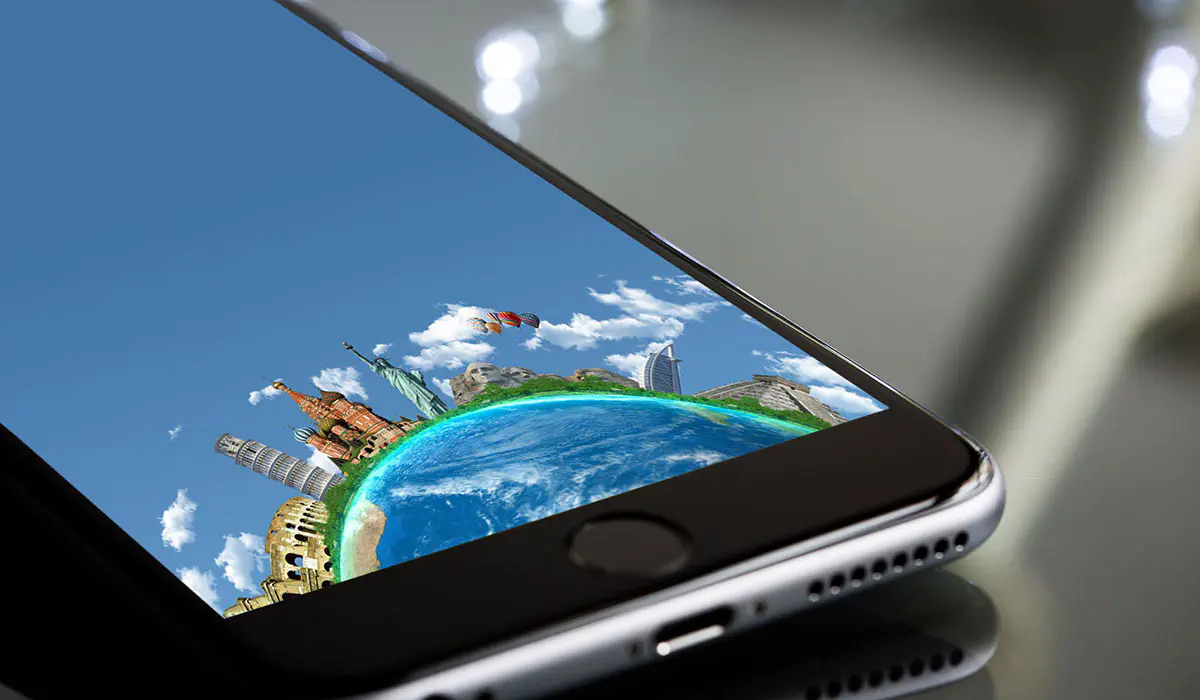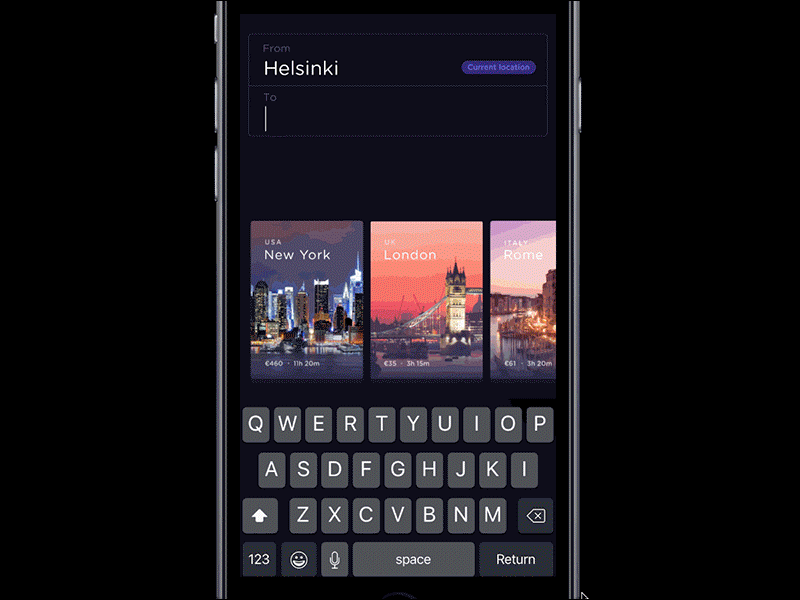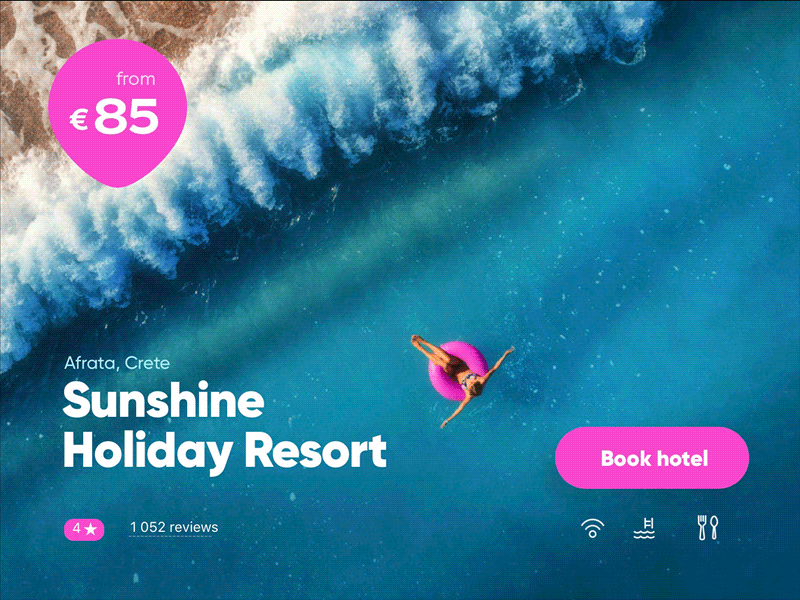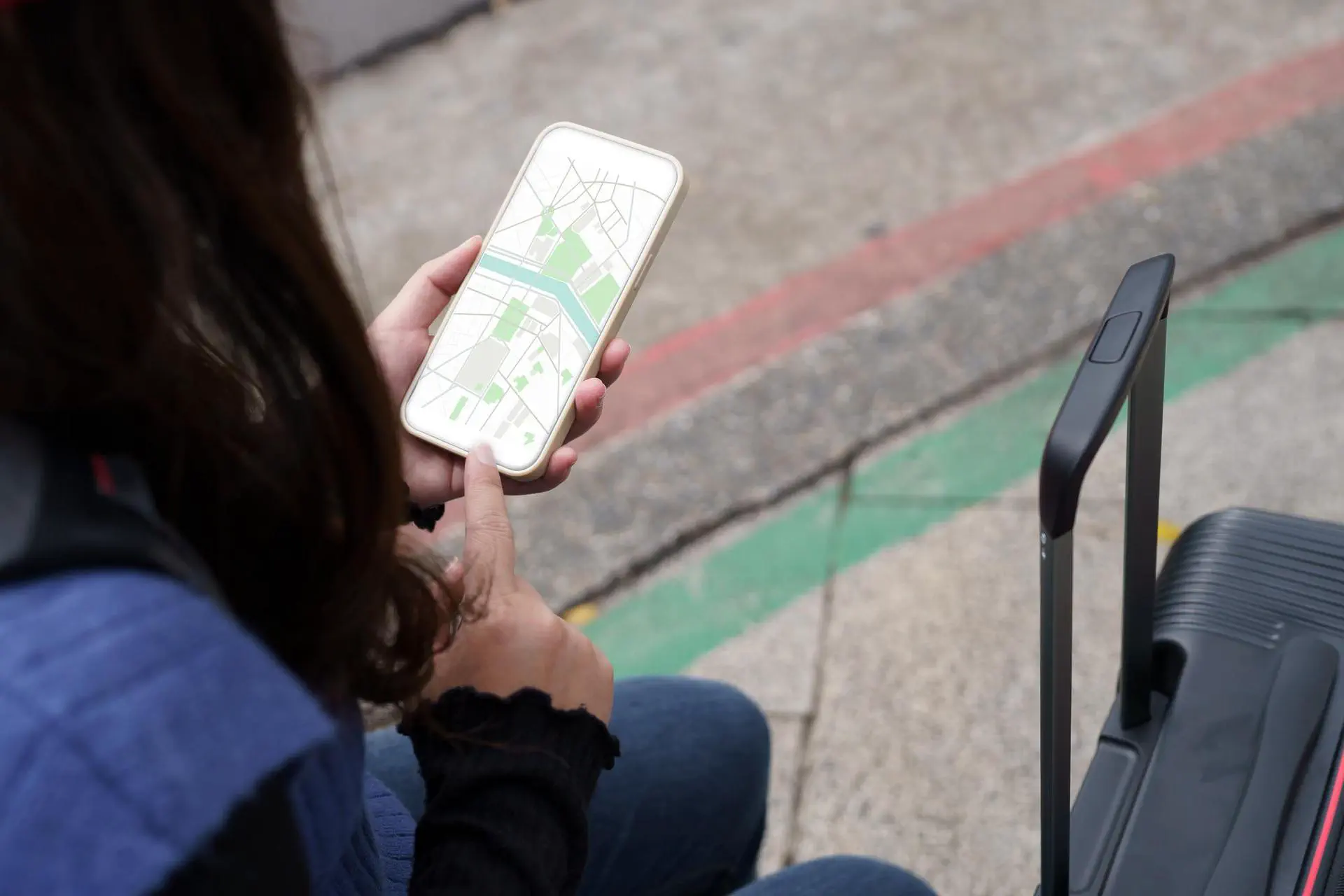How to Build a Travel App That Wins Customer Loyalty

Travelers want to focus on enjoying their trip, not getting bogged down by planning the details. With predictions of 280 million households traveling internationally at least once a year by 2025, there is a strong growth in apps to support users along every step.
The growth of apps in the travel sector
Although apps, in general, have seen consistent growth year after year, travel apps have been particularly popular. In 2012, there was a 116% increase in travel apps compared to an 84% growth in general mobile app use, the second highest increase after photography.
While travel apps are typically associated with booking hotels, only 18% of users had booked a hotel room with a mobile app, with the most common activity is to look up the hotel address or directions (29%), followed by activities outside of the expected bookings, including attractions to visit (23%) and nearby restaurants (22%).
Travel apps are offering more to their users and aren’t limited to tourists: local attractions and restaurants are also benefit people living in the area, making these apps marketable to a wider audience as well as having more longevity and used regularly rather than for the occasional trip.
Let’s review some things to keep in mind when you create an app for travel and tourism industry.
Saving money

Traveling is expensive, and fluctuating deals mean that users often end up paying more if they book too early or too late, whether it’s for flights, hotels, or excursions. Apps like Hopper analyze past and current flight trends to find the best time to book a flight, removing that indecision of when to buy a seat and saving money.
Offer something bigger and better
With such a broad market it’s easy to get lost in the crush of comparable services. Booking giants Booking.com and Airbnb compete in a similar market with slightly different focuses: Booking.com has the largest collection of hotels, with almost 30 million listings in 136,035 destinations across 228 countries.

Booking.com has monopolized scope, offering unparalleled choices for travel for both work and tourism, and so its competitors provide alternative services, such as Airbnb that showcases tourist experiences as well as budget-friendly “spare rooms” rather than focusing exclusively on hotels, or Hotels.com that has a loyalty program to encourage return customers.
To build a booking app that can survive and thrive in a sea of similar competitors, travel app developers have to offer consumers some benefits that overrule those of alternatives. Tripaneer combines experiences with accommodation to create a package holiday tailored to precisely what a traveler is looking for, whether that’s an intense martial arts trip, a relaxing yoga retreat, or a romantic culinary getaway: travelers are planning experiences rather than simply booking a bed.
Keep it organized
Once the trip is booked, the planning doesn’t end there.
Crafting a home away from home is nerve-wracking when there are a hundred things to remember and once you’re gone, you’re gone – no turning the train around to go back for contact lenses. It’s not enough for users to carry reservations on their phones: now the entire trip has to fit in the palm of their hand. Personal assistants like Google Trips and TripIt keep travelers on track with a list of what to pack, booking confirmations, travel itineraries, and local recommendations – all of which can be saved for offline use for when there’s no WiFi and to avoid roaming charges.
Map out the journey, explore the destination

Although it can be particularly enjoyable to explore the location on foot or by transport, sometimes travelers need a map to show them exactly where something is. This might be on the journey there – such as FLIO’s airport map and information – or once the traveller arrives by giving recommendations for activities nearby (with directions included, of course).
Think outside the box
Getting to a destination is the stressful part of any trip, and travelers are looking for something to make their journey more pleasant. LoungeBuddy is an app for checking into over 300 airport lounges – a little extra that might not have immediately sprung to mind but would be appreciated by consumers on any budget.
Instead of trying to beat well-established giants, companies can bring something new to the table by developing an app travelers might not have even known they needed, such as a sun exposure app that calculates how long users can stay in the sun until their next sunscreen top-up based on skin-type, UV index, and sun factor protection.
Virtual reality
Apps don’t have to be confined to the home screen: virtual and augmented reality has taken off in a big way over the past couple of years, with the industry projected to generate over $120 billion in revenues by 2020.
In an effort to keep up with an industry that is coming to find travel agents obsolete, Thomas Cook has introduced “virtual holidays,” a range of immersive virtual reality videos for consumers to “try before they buy.” Thomas Cook reported a 190% uplift in people booking New York excursions after trying the technology. Premium apps like Wikitude are bringing interactive content to destinations around the globe, making mobile phones a part of the travel experience.
Personalize at every level
Travelers are no longer content with a one-size-fits-all approach. Although an app must appeal to a wide range of users, its deliverables should be tailored to the individual. No trip is the same, and every app should support its users in having the perfect experience for them.
Closing word
Need a professional advice on how to build a travel app? With our wide expertise in travel app development, we can help you build the app you dream of. Contact us today to discuss your project!
Don't want to miss anything?
Subscribe and get stories like these right into your inbox.
Keep reading

Hottest Trends in Travel App Development for 2025
Travel apps are more popular than ever, with 60% of mobile users downloading and using them, according to a Tnooz study. The variety of apps promising to enhance our lives.

How to Build an AI Travel Agent: Complete Guide from MVP to Production
Complete technical guide for developing AI travel agents. Learn system architecture, LLM configuration, tool calling, RAG implementation, and production deployment strategies from industry experts.

How to Develop a Travel App for Travel and Tourism Industry
Travel app development is still relevant in 2022. However, some market overview never hurt anyone, so let's dive into the recent travel market trends.
Contact us
Let's explore how our expertise can help you achieve your goals! Drop us a line, and we'll get back to you shortly.